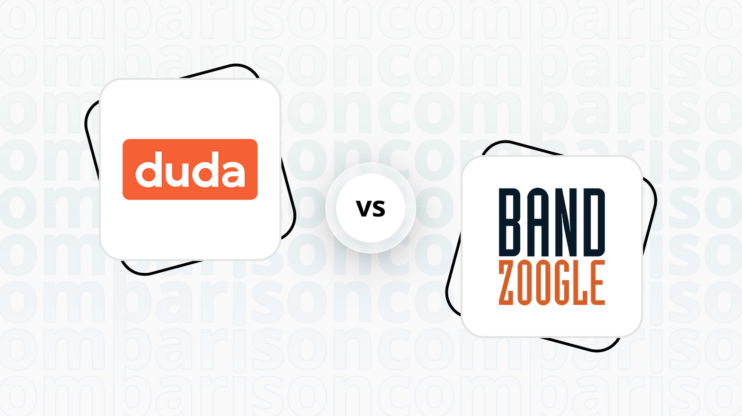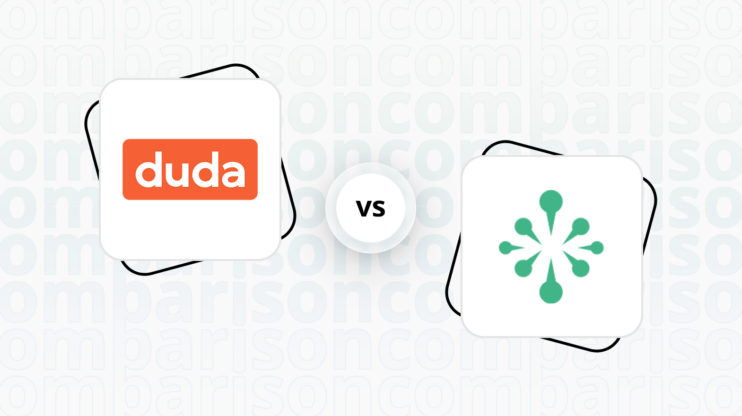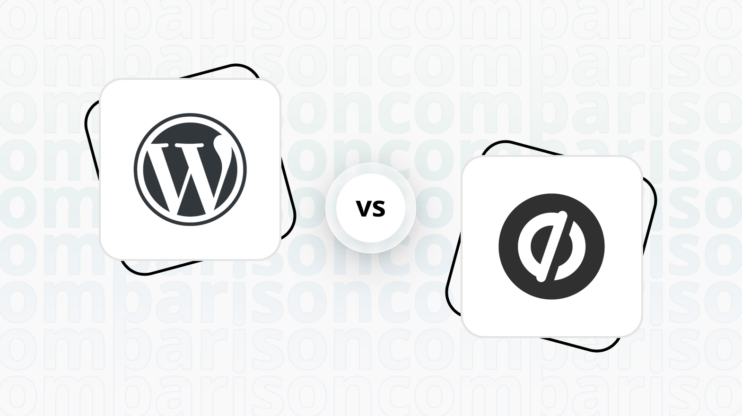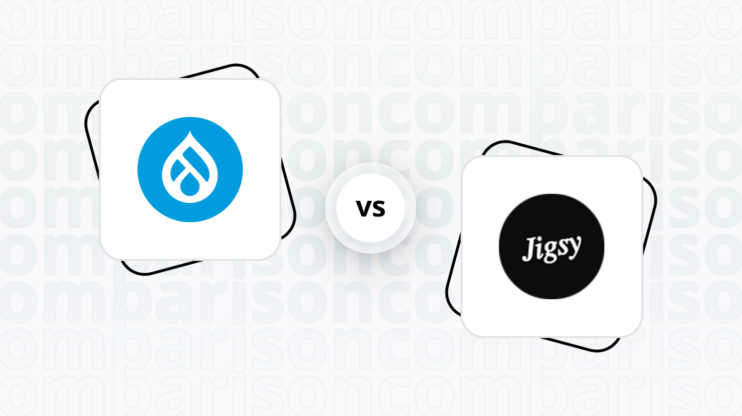Final verdict
Tilda and Sellfy both offer unique advantages, but they cater to different user needs and preferences.
-
Tilda (Overall Grade: 6.7/10)
excels in design flexibility and ease of use, making it a great choice for bloggers, small businesses, and digital marketers. It offers a wide range of pre-designed blocks and templates, robust customization options, and comprehensive learning resources. Tilda’s focus on typography and visual content, along with its integration capabilities, makes it a versatile tool for creating visually appealing websites. However, it falls short in ecommerce-specific features compared to Sellfy. -
Sellfy (Overall Grade: 6.0/10)
is tailored for creators looking to sell a variety of products, including digital, physical, subscription-based, and print-on-demand items. It provides a simple, user-friendly interface for quick setup and management of online stores. Sellfy stands out with its ecommerce capabilities, including integrated marketing tools and a higher uptime guarantee. However, it offers fewer design customization options and lacks some advanced features found in Tilda.

|

|
|
|---|---|---|
|
Design functionalities & templates |
8.6 |
5.2 |
|
Ease of use |
8.0 |
7.8 |
|
Ecommerce |
7.2 |
6.8 |
|
Website Editors |
8.0 |
6.8 |
|
Product testing options |
5.9 |
7.3 |
|
Price |
8.0 |
7.9 |
|
Hosting quality |
6.2 |
7.3 |
|
Website speed optimization |
4.9 |
5.4 |
|
Plugins and integrations |
7.6 |
6.7 |
|
Marketing features |
6.9 |
7.1 |
|
Customer support |
5.5 |
5.8 |
|
Security |
7.6 |
7.2 |
|
AI capabilities |
2.1 |
0 |
|
User Management |
7.3 |
2.0 |
Best for ecommerce
 7.2
7.2
 6.8
6.8
Verdict
: Tilda and Sellfy both offer robust ecommerce capabilities, but they cater to different needs. Tilda is ideal for visually appealing and professional-looking websites, while Sellfy is tailored for creators selling a wide array of products.
-
Tilda
: Tilda is a user-friendly platform for creating ecommerce websites with features like ready-made templates, various payment system integrations, and SEO optimization. It supports inventory management, CRM for order tracking, and tools for email marketing and membership areas. However, when comparing Tilda vs Sellfy, Tilda might be less suitable for creators looking to sell digital and subscription-based products. -
Sellfy
: Sellfy is tailored for creators looking to sell a wide array of products including digital, physical, subscription-based, and print-on-demand items. It offers a simple, user-friendly interface that allows for quick setup of an online store. However, it may fall short in providing the same level of visual customization and design flexibility as Tilda.
Best for informational & business websites
 8.4
8.4
 5.7
5.7
Verdict
: Tilda is the superior choice for creating informational and business websites, thanks to its robust design functionalities and ease of use. Sellfy, while excellent for ecommerce, falls short in this category.
-
Tilda
: Tilda excels in creating visually appealing and professional-looking websites. It offers a wide range of pre-designed blocks and templates that can be customized to fit various design needs. This makes it ideal for bloggers, small businesses, and digital marketers who prioritize design and visual content. Tilda’s focus on typography and visual elements ensures that informational websites look polished and engaging. With a score of 8.4, Tilda is a top choice for informational and business websites. -
Sellfy
: Sellfy is primarily an ecommerce platform tailored for creators looking to sell digital, physical, subscription-based, and print-on-demand products. While it offers a simple, user-friendly interface and a quick setup process, its design functionalities and templates are limited compared to Tilda. Sellfy’s focus on ecommerce means it lacks the flexibility and design options needed for creating standout informational websites. With a score of 5.7, Sellfy is better suited for users whose primary goal is to sell products online rather than create informational content.
Detailed comparison
Design functionalities & templates
Design FunctionalitiesRepresents how well each platform allows for creative design and customization of websites.Score Components:
- Template Variety (30%): Range and quality of design templates.
- Customization (30%): Flexibility and options for design alterations.
- User Interface (20%): Ease and intuitiveness of the design process.
- Responsiveness (10%): Adaptability to different devices and screen sizes.
- Innovation (10%): Unique design features and tools.
 8.6
8.6
 5.2
5.2
Winner: Tilda.
Tilda offers a wider range of design functionalities and templates, making it a more flexible choice for users who want to customize their website’s design.
Tilda offers a diverse selection of design templates that are suitable for various types of content, all crafted by professional designers. These templates emphasize gorgeous typography, minimalist blocks, and striking images. Users have the flexibility to modify any template significantly or even start from scratch, ensuring the final website can meet a wide range of design preferences and requirements.
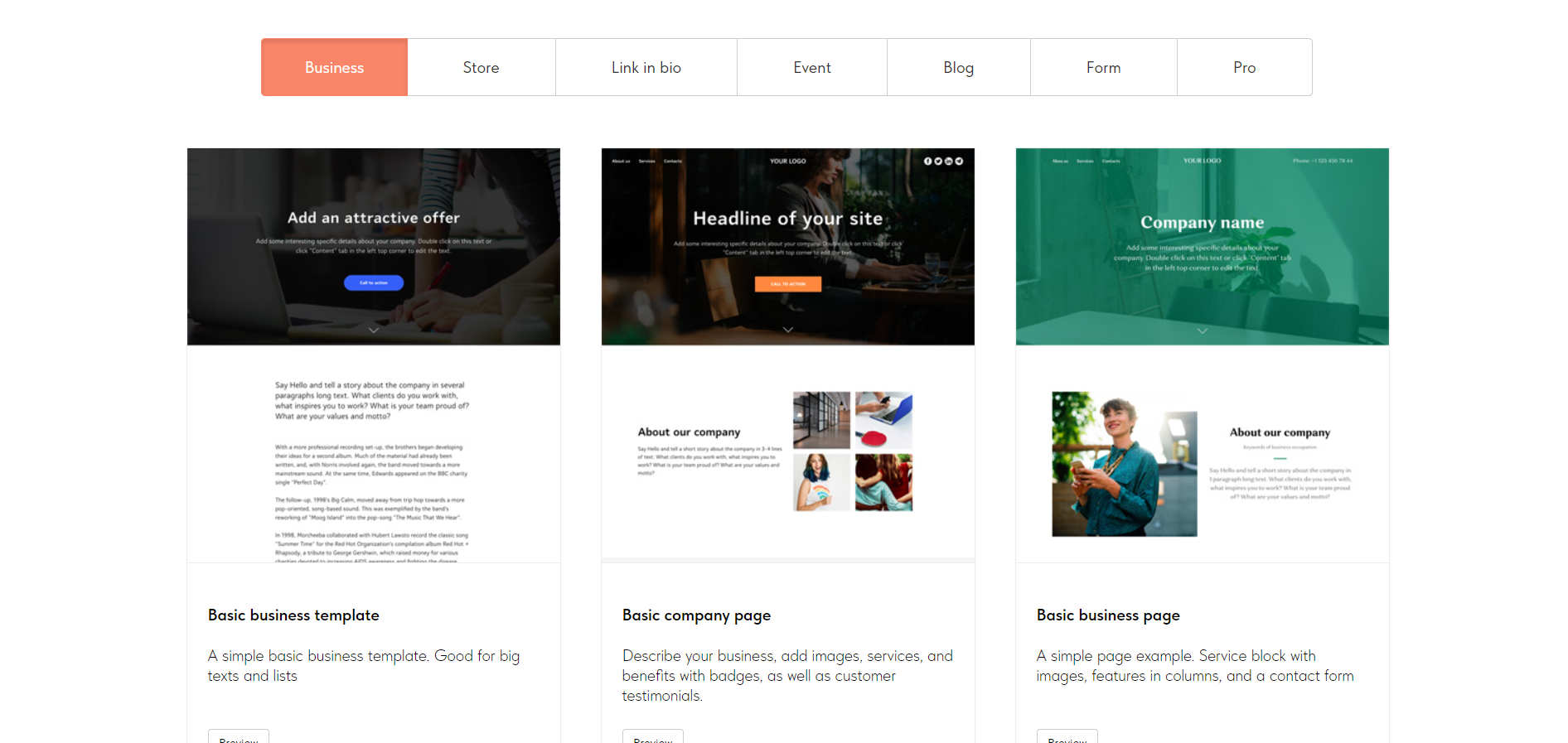
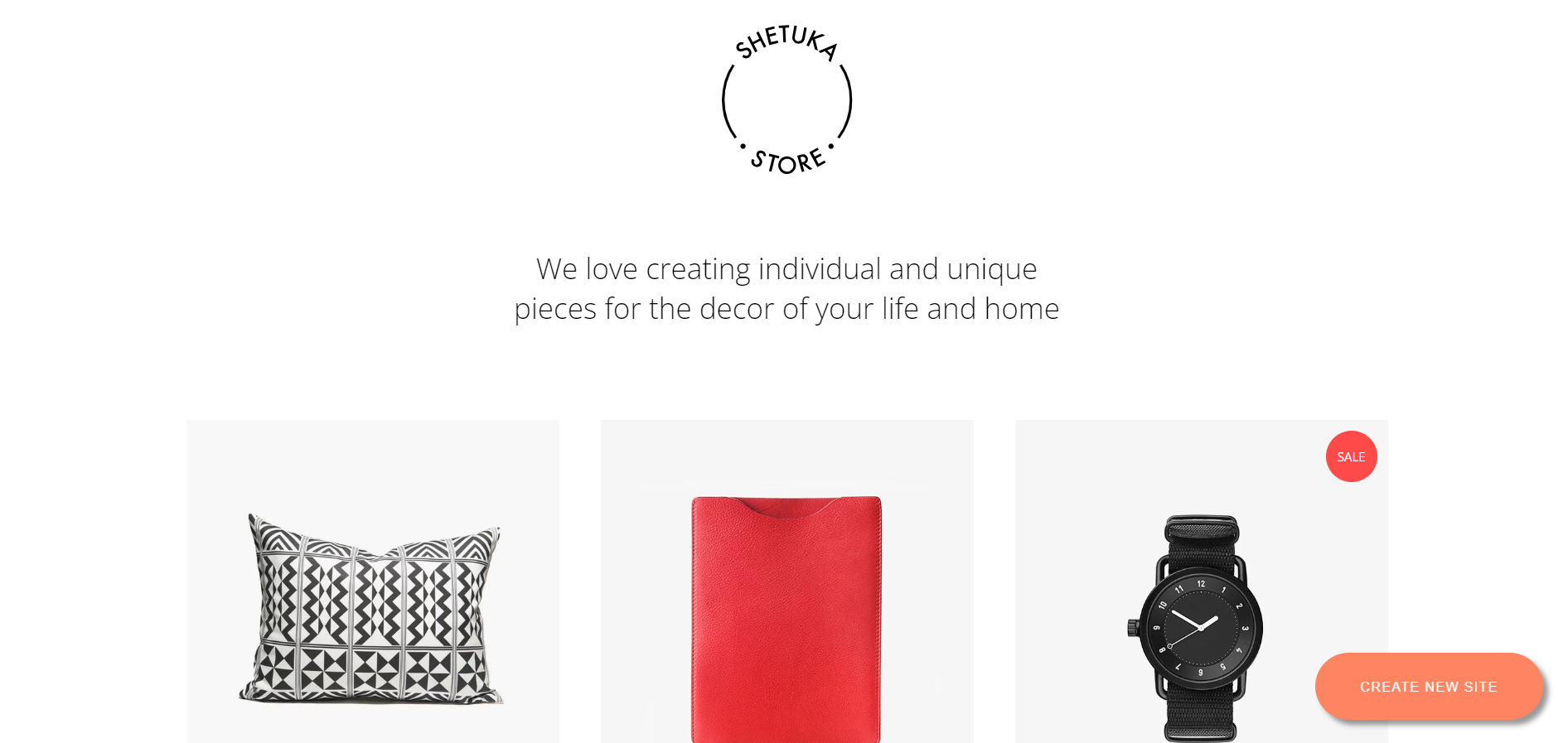
On the other hand, Sellfy provides a collection of design templates through its theme store, located in the Store Customizer. Users have the option to preview these themes before applying them to their websites. As of the latest information, Sellfy offers five main theme options: Lumiére, Noir, Savant, Idée, and Mode. These themes cater to various aesthetic preferences and can be published to go live on a user’s website after selection and customization.
Get a head start on website creation with AI
Create a custom website tailored to your business needs 10X faster with 10Web AI Website Builder!
Ease of use
Ease of useReflects the platform’s overall user-friendliness.Score
Components:
- Learning curve (40%): Quickness and ease of getting started.
- Interface design (30%): Simplicity and intuitiveness of layout.
- User guidance (20%): Quality of tutorials and support.
- Flexibility (10%): Adaptability to various user skills.
 8.0
8.0
 7.8
7.8
🏆 Winner: Tilda
. Scoring a close 8.0, Tilda edges out Sellfy, which scored 7.8. Both platforms are user-friendly, but Tilda’s wide range of modern, responsive templates and robust set of features give it a slight advantage. If ease of use is a priority, Tilda is the clear winner in this category.
Learning Resources
🏆 Winner: Tilda
. Both platforms offer a variety of learning resources, but Tilda provides more comprehensive resources and tools for users to create websites, online stores, and online courses without coding skills. However, some reviews suggest that Tilda’s customer support could be improved.
For ecommerce
EcommerceMeasures the platform’s effectiveness in supporting online business activities.Score Components:
- Ecommerce themes and templates (20%): Variety and design of templates.
- Product management (25%): Ease of managing and organizing products.
- Payment options (25%): Variety and convenience of payment methods.
- Ecommerce features (20%): Features for managing an ecommerce store.
- Integration (10%): Compatibility with external e-commerce tools and services.
 7.2
7.2
 6.8
6.8
Tilda and Sellfy both offer robust ecommerce capabilities, but they cater to different needs. Tilda is a user-friendly platform for creating ecommerce websites with features like ready-made templates, various payment system integrations, and SEO optimization. It supports inventory management, CRM for order tracking, and tools for email marketing and membership areas. On the other hand, Sellfy is tailored for creators looking to sell a wide array of products including digital, physical, subscription-based, and print-on-demand items. It offers a simple, user-friendly interface that allows for quick setup of an online store.

|

|
|
|---|---|---|
|
Ecommerce themes and templates |
6.5 |
7.0 |
|
Product page customization |
7.0 |
6.5 |
|
Payment processing and commissions |
7.5 |
8.0 |
|
POS capabilities |
0.0 |
4.0 |
|
Payment gateways |
7.8 |
6.0 |
|
Product numbers |
6.0 |
7.5 |
|
Additional ecommerce features |
6.5 |
6.5 |
Tilda ecommerce features:
- Product Catalogs and Inventory management
- Payment Gateways integration
- Shipping options
- Order management
- Built-in CRM and marketing tools
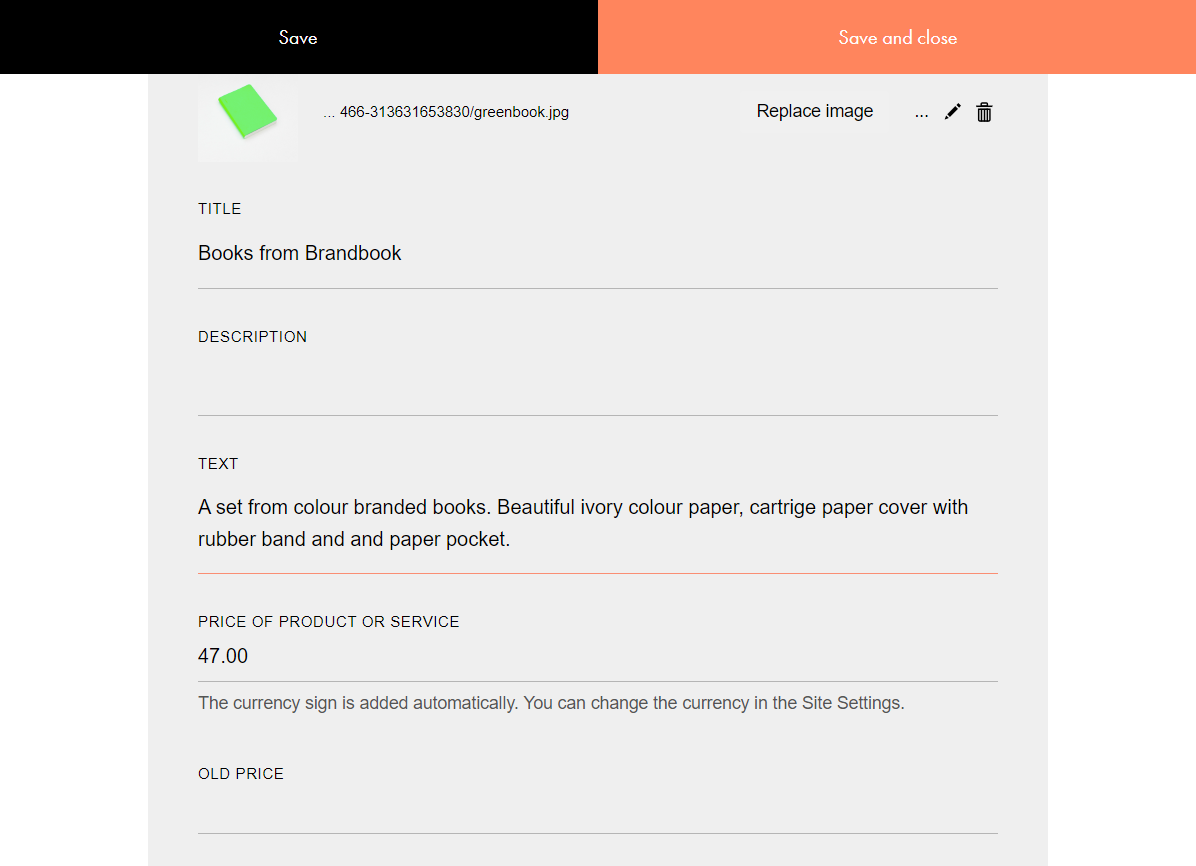
Sellfy ecommerce features:
- Product Listings
- Payment Gateways integration
- Product categories
Ecommerce themes & templates
Tilda allows users to build their ecommerce sites using around 20 ready-made online store templates, emphasizing ease of use and the ability to create a store without needing coding or web design skills. The platform focuses on providing a seamless online shopping experience, enabling features such as adding items to the cart, viewing product specifications, customizing additional services like delivery, and choosing payment methods. On the other hand, all the templates of Sellfy are designed for online stores.
Product page customization
Tilda enables a wide range of customizations for product pages in online stores, including the design, ecommerce functionalities, and integration with external services. Features like product variants, delivery options, promotional codes, and diverse payment system integrations allow for a personalized shopping experience. Sellfy supports a diverse range of products including digital goods like music, videos, ebooks, and software, as well as physical products and print-on-demand merchandise such as t-shirts and mugs. The platform enables the sale of subscriptions, offering a means for recurring revenue.
Payment processing
When it comes to payment processing, Tilda supports a variety of popular payment systems such as Stripe, PayPal, and 2Checkout, allowing for easy integration to accept online payments. Tilda does not impose additional transaction fees beyond those of the payment gateways themselves. On the other hand, Sellfy supports two primary payment gateways, Stripe and PayPal, allowing for various payment options including credit/debit cards and localized payment methods in Europe. The platform does not charge transaction fees beyond its subscription cost, though payment processors’ standard fees apply.
Website Editors
Website EditorsEvaluates the platforms’ website building and editing capabilities.Score Components:
- Customization tools (40%): Range and power of editing features.
- Editor usability (30%): User experience within the editor.
- Design flexibility (20%): Freedom in layout and design changes.
- Update and maintenance ease (10%): Simplicity of updating and maintaining the site.
 8.0
8.0
 6.8
6.8
🏆
Winner: Tilda
. Tilda, with a score of 8.0, offers a user-friendly, block-based design approach that simplifies the process of creating websites without requiring in-depth coding knowledge. It features advanced customization options through its Zero Block feature, allowing for detailed control over design elements for those needing more specific layouts. The platform supports responsive design, ensuring websites are optimized for all devices, and includes built-in SEO tools, analytics, and a range of integrations with third-party services for extended functionality.
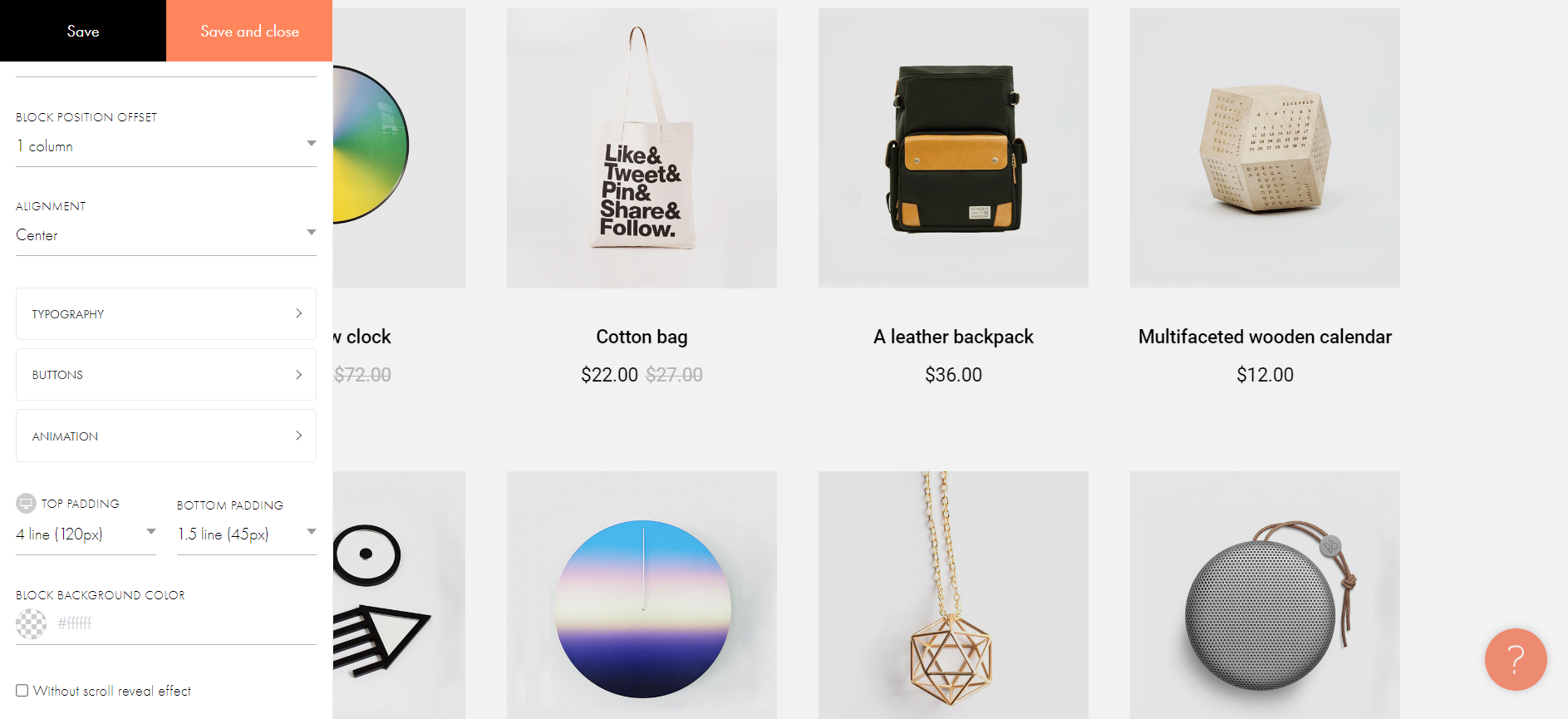
Sellfy’s website builder, scoring 6.8, offers a straightforward and user-friendly platform for creating online stores, focusing on simplicity over advanced customization. It supports the sale of digital, physical, subscription-based, and print-on-demand products, alongside integrated marketing tools for promotion and sales optimization. Despite some limitations in design customization and app integrations, Sellfy aims to provide a comprehensive e-commerce solution for entrepreneurs and creators.
Mobile editor/app
 5.5
5.5
 7.5
7.5
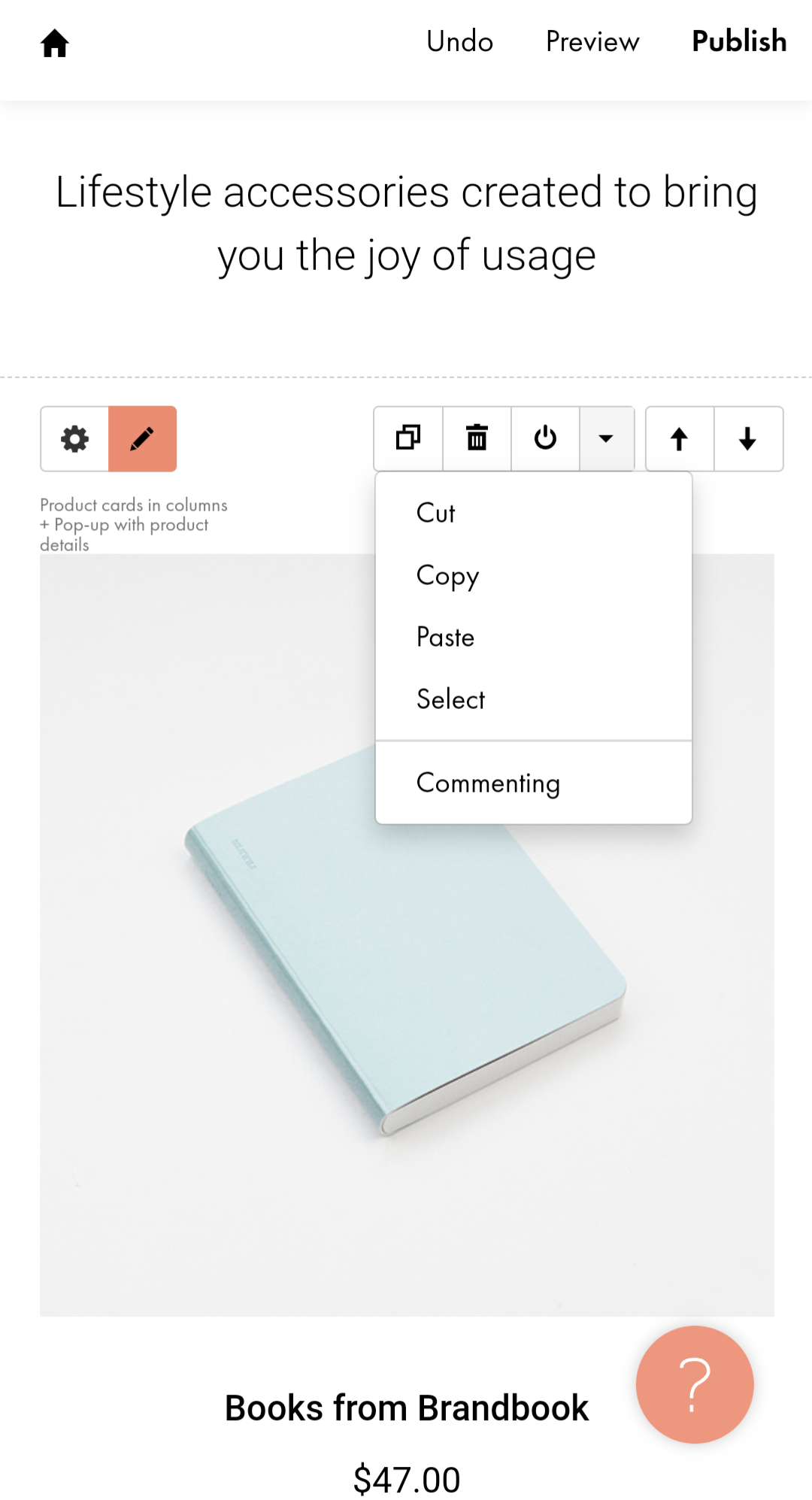
🏆
Winner: Sellfy
. Both Tilda and Sellfy offer mobile capabilities for managing your website, but they cater to different needs. Tilda does not have a dedicated mobile editor app, but users can manage and edit their websites using the mobile browser version of the editor. This approach may be less convenient for users who prefer to work on their websites through a dedicated mobile app.
Sellfy, on the other hand, offers a mobile app that allows store owners to manage their online stores on the go. The app offers functionalities such as viewing store performance metrics, managing and tracking orders, and receiving customized notifications. However, it’s not possible to change the layout or the design of the website itself through the app. Despite this limitation, Sellfy’s mobile app provides a more convenient and efficient way for store owners to manage their online stores, earning it a higher mobile editor score than Tilda.
In summary, Sellfy receives a higher rating due to its dedicated mobile app and the convenience it offers for managing online stores, while Tilda’s lack of a dedicated mobile app may be less convenient for users who prefer to work on their websites through a dedicated mobile app.
Product testing options
Product Testing OptionsAssesses the options for trying out platform features before commitment.Score Components:
- Trial quality (40%): Extent and usefulness of the trial or free version.
- Feature accessibility (30%): How many features are available to test.
- Trial duration (20%): Length of the trial period.
- Ease of transition (10%): Smoothness of moving from trial to paid plans.
 5.9
5.9
 7.3
7.3
Overall Result
:
Sellfy Wins
. Sellfy scores 7.3, outperforming Tilda’s 5.9 in product testing options. Sellfy offers a 14-day free trial and allows testing of premium features during this period. Additionally, it provides a 30-day money-back guarantee, offering a risk-free opportunity to explore its features. On the other hand, Tilda offers a free version with some premium features available for testing, but it lacks a trial version and a money-back guarantee.

|

|
|
|---|---|---|
|
Free Plan |
Yes | No |
|
Trial Duration |
No |
14 days |
|
Testing Premium Features |
Some features with free plan |
During the free trial |
|
Money Back Guarantee |
No |
30 days |
Price
PriceLooks at the cost-effectiveness and value for money of each platform.Score Components:
- Plan value (40%): What each pricing tier offers.
- Transparency and clarity (30%): Clearness of pricing structures.
- Flexibility of plans (20%): Range of options to suit different budgets.
- Hidden costs (10%): Additional expenses not included in the plan.
 8.0
8.0
 7.9
7.9
Tilda and Sellfy both offer competitive pricing, but Tilda edges out with a slightly higher price score and a free plan option.

|

|
|
|---|---|---|
|
Free |
Free ($0/month): Tilda’s Free plan allows for 1 website with up to 50 pages per website and 50 MB of space per project. It includes a free subdomain on tilda.ws, responsive design on all devices, basic animations, a built-in image and icon library, and Tilda CRM. |
No offering at this amount. |
|
$10-$20 |
Personal ($15/month): The Personal plan offers 1 website with up to 500 pages and 1 GB of space. It includes all features of the Free plan plus the ability to connect a custom domain, advanced animations, full access to the Block Library, analytics, SEO tools, and online store capabilities. Value for price: 7.5 |
No offering at this amount. |
|
$20-$30 |
Business ($25/month): The Business plan expands capabilities to 5 websites per account, each with up to 500 pages and 1 GB of space, including source code export and API access. It builds upon the Personal plan features with additions suitable for more extensive business needs. Value for price: 9.0 |
Starter ($29/month): Ideal for growing businesses with sales up to $10k/year. Offers unlimited products, digital and subscription products, domain connection, and 2,000 email credits. Annual savings available. Value for price: 7.5 |
|
$70-$80 |
No offering at this amount. |
Business ($79/month): Targets businesses with up to $50k in yearly sales, offering everything in the Starter plan plus 10,000 email credits, product and store design migration, product upselling, cart abandonment tools, and Sellfy branding removal. Value for price: 8.0 |
|
$100+ |
No offering at this amount. |
Premium ($159/month): For businesses with up to $200k/year in sales. Includes everything in the Business plan plus 50,000 email credits, product migration, and priority support. Annual savings are also offered. Value for Price: 8.5 |
location. As a result in rare cases the prices displayed here can differ from the ones you see on their
websites.
Hosting quality
Hosting
qualityExamines the reliability and performance of the hosting solutions.Score Components:
- Uptime (40%): Consistency and reliability of website availability.
- Speed (30%): Loading times and performance.
- Bandwidth and storage (20%): Sufficiency of resources provided.
- Data centers (10%): Quality and distribution of hosting infrastructure.
 6.2
6.2
 7.3
7.3
🏆
Winner: Sellfy
Sellfy edges out Tilda with a higher uptime of 99.99%, despite both platforms not offering an uptime guarantee. Both platforms do not disclose their hosting type or the locations of their data centers, making a direct comparison challenging. However, Sellfy’s superior uptime gives it a slight advantage in this category.

|

|
|
|---|---|---|
|
Do they offer hosting? |
Yes, cloud hosting |
Yes |
|
Data Centers: |
Not disclosed |
Not disclosed |
|
Type of hosting: |
Cloud Hosting |
Not disclosed |
|
Uptime: |
99.9% |
99.99% |
|
Uptime Guarantee: |
No |
No |
Website Speed Optimization
Website Speed OptimizationEvaluates optimization of website loading timesScore Components:
- PageSpeed Score (30%): Google’s score indicating performance optimization.
- Loading Time (30%): The average time until a website is fully interactive.
- Mobile Optimization (15%): Optimization effectiveness for mobile devices.
- Resource Optimization (15%): Optimizing images, scripts, and other heavy resources.
- CDN Usage (10%): Use of CDN to enhance speed across geolocations.
 4.9
4.9
 5.4
5.4
🏆 Winner: Sellfy
Both Tilda and Sellfy have strategies in place for website speed optimization, but Sellfy edges out Tilda with a slightly higher score.

|

|
|
|---|---|---|
|
Key Strategies |
Lazy Loading, Image Optimization |
Code Minification, Caching, Image Optimization |
|
Load Times |
Varies depending on optimization and website complexity |
Varies depending on optimization and website complexity |
|
Page Speed Scores Range |
Varies depending on optimization and website complexity |
Varies depending on optimization and website complexity |
|
Core Web Vitals Improvement |
No information provided |
No information provided |
Sellfy’s approach to speed optimization includes code minification, caching, and image optimization. These strategies help to reduce the amount of data that needs to be transferred, thereby improving load times and PageSpeed scores. However, Sellfy does not provide any specific information on their Core Web Vitals improvements.
Tilda, on the other hand, focuses on lazy loading and image optimization for speed optimization. Lazy loading can significantly improve load times by only loading content as it becomes necessary, while image optimization reduces the size of images without sacrificing quality. Like Sellfy, Tilda does not provide any specific information on their Core Web Vitals improvements.
Get a head start on website creation with AI
Create a custom website tailored to your business needs 10X faster with 10Web AI Website Builder!
Plugins and integrations
Plugins and integrationsMeasures the range and effectiveness of additional plugins and integrations.Score Components:
- Variety of options (40%): Range of available add-ons.
- Integration smoothness (30%): Ease of integrating plugins into the site.
- Quality of plugins (20%): Functionality and reliability of the options.
- Custom integration capabilities (10%): Support for custom or third-party integrations.
 7.6
7.6
 6.7
6.7
🏆 Winner: Tilda.
Tilda scores 7.6, offering a diverse range of services to enhance the functionality of websites created on its platform. It supports popular processors such as Stripe, PayPal, and Verifone, making transactions smooth and versatile. In terms of forms, it offers integration with a variety of services including Google Sheets, Mailchimp, SendGrid, and CRM tools like AmoCRM and Pipedrive, as well as automation through Zapier and documentation in Notion, facilitating effective communication and data management. Additionally, it connects with Google Analytics and Google Tag Manager for in-depth website analytics, and includes other integrations like Google Maps and social media platforms.
Sellfy, with a score of 6.7, also offers various integrations for its website builder, including Google Analytics, Facebook Live Chat, Zapier, and social media advertising tools, to enhance ecommerce functionality and automate workflows. The integration with Zapier notably expands possibilities by connecting to thousands of apps, supporting a broad range of automation options. However, Tilda’s wider range of services and higher score give it the edge in this category.
Marketing Features
Design FunctionalitiesRepresents how well each platform allows for creative design and customization of websites.Score Components:
- Template Variety (30%): Range and quality of design templates.
- Customization (30%): Flexibility and options for design alterations.
- User Interface (20%): Ease and intuitiveness of the design process.
- Responsiveness (10%): Adaptability to different devices and screen sizes.
- Innovation (10%): Unique design features and tools.
 6.9
6.9
 7.1
7.1
🏆
Overall Winner: Sellfy
. Sellfy edges out Tilda with a slightly higher score, offering a more comprehensive set of marketing tools, including ads and promotions, which Tilda lacks. However, Tilda excels in social media integration and offers email marketing through third-party services.

|

|
|
|---|---|---|
|
SEO Tools |
|
|
|
Email Marketing |
✓ (through third-party services) |
|
|
Blogging |
|
✗ |
|
Social Media Integration |
|
|
|
Analytics and Reporting |
✓ (through Google Analytics) |
|
|
Ads and Promotions |
✗ |
|
Customer Support
Customer supportEvaluates the quality and availability of support options.Score Components:
- Response time (40%): Speed of support responses.
- Support quality (30%): Effectiveness and helpfulness of the support.
- Availability (20%): Range of support channels (phone, chat, email).
- Resource richness (10%): Quality of self-help and educational materials.
 5.5
5.5
 5.8
5.8
🏆 Winner: Sellfy
. In the Tilda vs Sellfy comparison, Sellfy edges out Tilda with its 24/7 customer support availability. Although Sellfy lacks phone and live chat support, its round-the-clock email support ensures users can get assistance whenever needed. This is particularly beneficial for users who may encounter issues outside of regular business hours.
Tilda, on the other hand, primarily offers email support without specified hours of availability. While Tilda provides a comprehensive Help Center with articles and tutorials for self-help, the lack of 24/7 support can be a limitation for users needing immediate assistance. Overall, Sellfy’s continuous support availability gives it a slight advantage in this category.
Security
SecurityLooks at the platforms’ security measures and data protection.Score Components:
- Data protection (40%): Safeguards for user and customer data.
- SSL and encryption (30%): Implementation of secure connections.
- Compliance (20%): Adherence to industry security standards.
- Regular updates (10%): Frequency of security updates and patches.
 7.6
7.6
 7.2
7.2
🏆
Winner: Tilda
. Tilda’s security measures are comprehensive, with a focus on GDPR compliance, DDoS prevention, and HTTPS encryption. The platform also provides SSL certificates, including free Let’s Encrypt certificates, to secure data transmission. These features collectively enhance both the security and performance of websites built with Tilda.
Although it may not offer the same level of specialized ecommerce security features as Tilda, Sellfy is committed to maintaining a secure platform for all types of websites. This includes the use of secure payment processors like Stripe and PayPal, unique download links for each purchase, limited download attempts, and additional tools like PDF stamping to deter content sharing. While these strategies significantly mitigate risks, Sellfy also recognizes the inherent challenges of completely eliminating piracy in the digital space. The platform takes a pragmatic approach by providing tools that both protect creators’ content and assist in handling disputes effectively.
AI Capabilities
AI capabilitiesMeasures the effectiveness of AI-driven features and tools.Score Components:
- Automation efficiency (40%): Impact of AI on streamlining processes.
- Personalization (30%): AI-driven customization for users or customers.
- AI-Assisted design (20%): Role of AI in website design and functionality.
- Data analysis (10%): Use of AI in interpreting user data and analytics.
 2.1
2.1
 0
0

|

|
|
|---|---|---|
|
AI Builder |
|
|
|
AI Ecommerce features |
|
|
|
AI content generation |
AI feature for generating website content |
|
|
Additional AI features |
|
|
🏆 Winner: Tilda
. Tilda, with a score of 2.1, has a limited AI capability that focuses on content generation. This feature can generate headlines and text blocks for the website, which can be a useful tool for users who struggle with content creation.
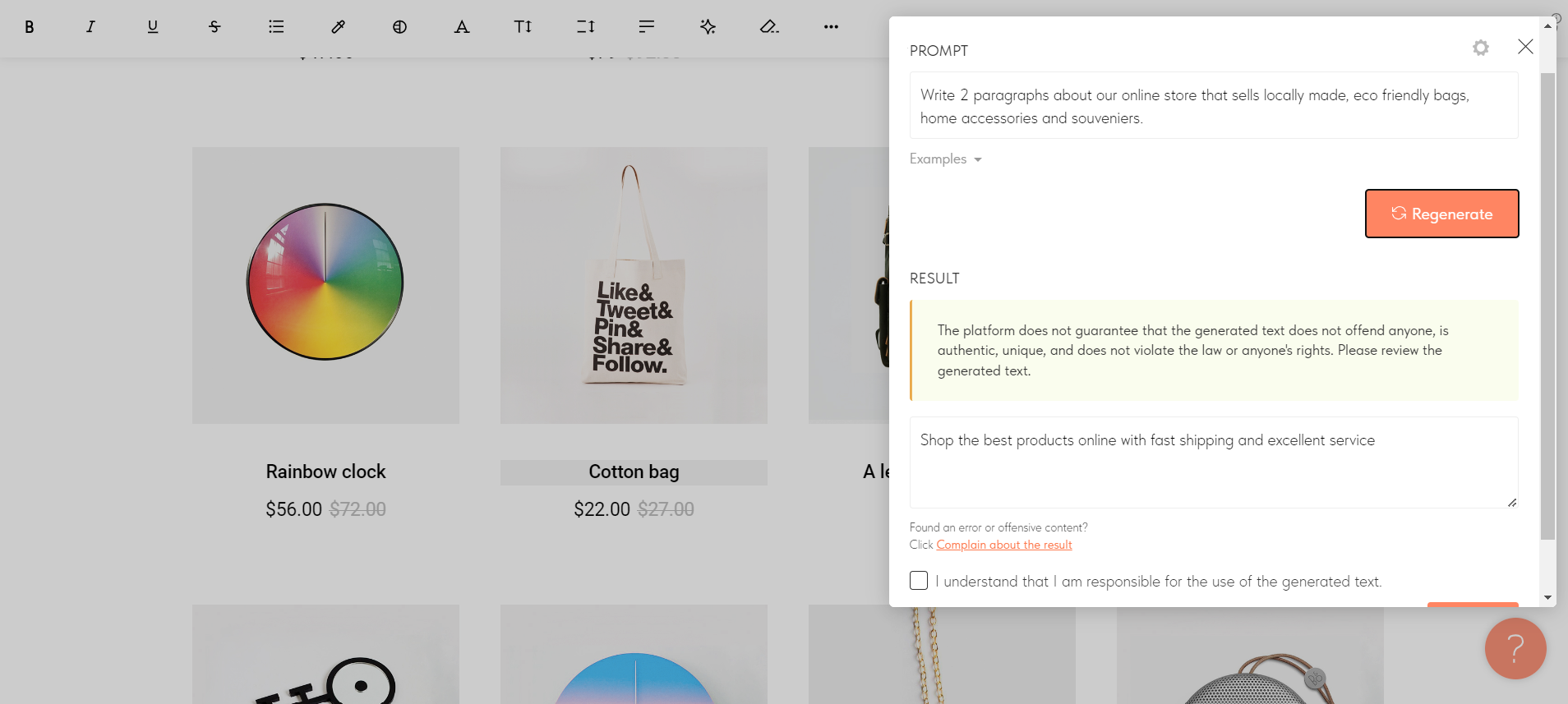
Sellfy, on the other hand, does not have any AI capabilities, scoring 0 in this category. It does not offer any AI features for building, ecommerce, content generation, or any additional AI features.
User Management
User ManagementAssesses the platforms’ capabilities in managing user roles, permissions, and accessibility.Score Components:
- Role Customization (40%): Flexibility in creating and defining user roles and
permissions. - Ease of Management (30%): User interface and tools for managing users.
- Access Control (20%): Effectiveness of access control measures for different user
levels. - Scalability (10%): Ability to manage a growing number of users efficiently.
 7.3
7.3
 2.0
2.0
🏆 Winner: Tilda
. Tilda and Sellfy have different approaches to user management.
- Tilda’s Collaborators feature allows adding teammates with either Full or Limited access. Full access enables collaborators to edit, publish, delete pages, view requests and statistics, and make changes to built-in website services. Limited access allows the project owner to specify what actions the collaborator can perform. This feature is available as a premium offering, and adding more collaborators requires additional payment, with costs adjusted based on previously paid periods. It applies to the entire account, not individual projects, and collaborators can be managed or replaced through the Site Settings.
- Sellfy does not support adding multiple users or staff to a single account.
Given the lack of user roles and access levels information for both platforms, we cannot provide a detailed comparison in this regard. However, based on the available information, Tilda offers more flexibility and control over user management, making it the winner in this category.
Additional Features

|

|
|
|---|---|---|
|
SSL Certificate |
|
|
|
Custom Domain |
|
|
|
Free Custom Domain Included |
|
|
|
International Domains |
|
|
|
Mobile Responsive |
|
|
|
Page Speed |
|
|
|
Website Builder Mobile App |
|
|
|
Convert a Website To An App |
|
|
|
Website Analytics |
|
|
|
Multilingual Sites |
|
|
|
Multiple Users |
|
|
User Feedback
Tilda Publishing receives varied feedback from users, highlighting its strengths in offering a no-code, customizable website building experience with features like Zero Block for personalization and easy backend setup. Users appreciate its affordability, user-friendly interface, and responsive customer support. However, criticisms include buggy font customization, limited design elements, and instability in some of its features. Despite these drawbacks, many find Tilda beneficial for creating professional websites quickly and managing multiple sites under one plan, although some users advise caution due to issues with stability and customer support.
The user feedback on Sellfy highlights its strengths in providing an efficient, compact online store setup that caters to specific needs with affordable pricing, including a 14-day trial period to familiarize users with the product. Many appreciate its user-friendly interface, internal marketing tools, and customization options, which enable sellers to tailor their storefronts to their brand, along with integrations for payment processing like PayPal and Stripe. However, criticisms include issues with mobile site speed, a desire for clearer insights, limitations on customization, and some customer service inefficiencies.
The making of this blog
We followed a clear, step-by-step process to write and research this article.
FAQ
Which platform is better for ecommerce, Tilda or Sellfy?
Can I use Tilda and Sellfy for creating a blog or informational website?
How do Tilda and Sellfy compare in terms of design and customization?
What are the main differences in pricing between Tilda and Sellfy?
Which platform offers better customer support, Tilda or Sellfy?
Are there any significant differences in hosting quality and website speed optimization between Tilda and Sellfy?
How do Tilda and Sellfy handle security and user management?










